
ICAS Bulletin (online ISSN 2836-3418, print ISSN 2836-340X) is published every other week throughout the year at 1919 M St NW, Suite 310, Washington, DC 20036.
The online version of ICAS Bulletin can be found at chinaus-icas.org/bulletins/.
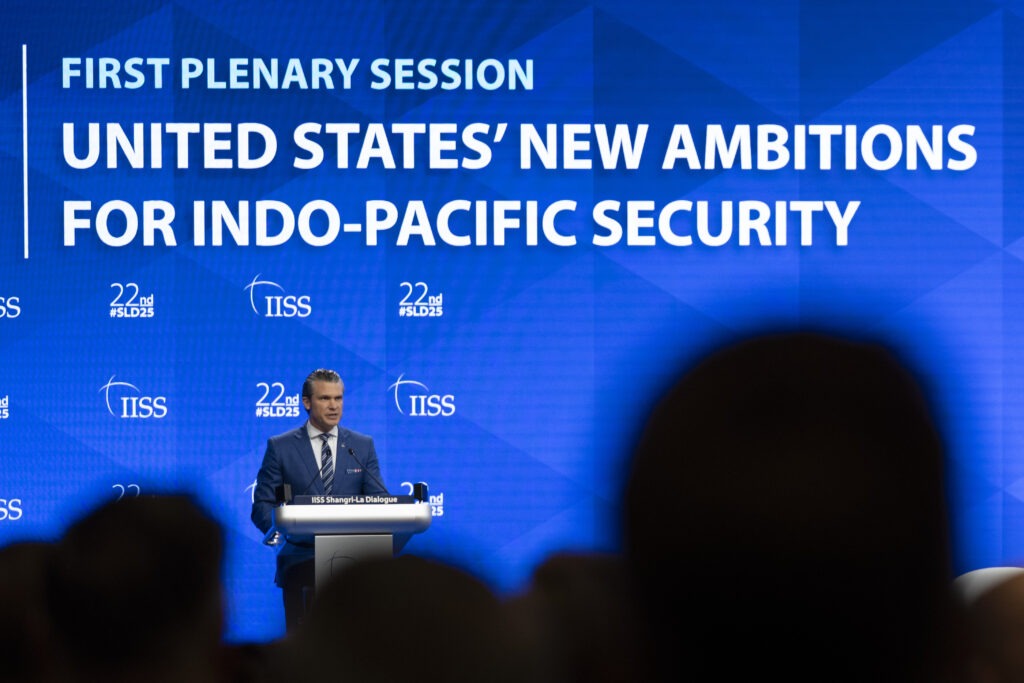
–U.S. Defense Secretary Pete Hegseth outlined the U.S. vision for a stable Indo-Pacific built on shared defense efforts during his speech at the Shangri-La Dialogue on May 30. He urged regional allies to strengthen deterrence in the region, warning that China poses a real and potentially imminent threat.
– Hegseth declared the U.S. would reposition its military posture in Asia to deter “communist China,” warning Beijing is preparing to use force to alter the Indo-Pacific balance.
– While Hegseth stressed the U.S. does not seek conflict or regime change, he also stated that the U.S. is prepared to respond if deterrence fails, especially in the case of aggression toward Taiwan.
– On May 31, China’s Rear Admiral Hu Gangfeng, vice-president of China’s National Defense University, rejected criticisms against China as politically motivated and unfounded, and accused unnamed actors of inciting confrontation and destabilizing the Asia-Pacific.
– In his speech, Hu Gangfeng emphasized the necessity of “true multilateralism” and regional consultation in preserving Indo-Pacific maritime security, and warned against unilateralism, hegemonic bullying, and efforts to obstruct China’s reunification goals.
– On June 1, China protested to the U.S against Hegseth’s “Cold War mentality,” accusing him of vilifying China and inciting bloc confrontation in Foreign Ministry spokesperson’s remarks. China also publicly reaffirmed its positions on Taiwan and the South China Sea.
– China’s Defense Minister Dong Jun was absent from the Shangri-La Dialogue, raising concerns over escalating U.S.-China tensions as there will be no top-level military talks between the two countries. One theory is that Beijing opted not to send a high-profile delegate during this sensitive moment as it navigates a tariff war with the Trump administration.
Associated News References:
“China accuses US’s Hegseth of ‘vilifying’ remarks at security forum”, Reuters, June 1
“Hegseth says the U.S. will reposition military amid threat from China,” National Public Radio, May 31
“China rejects ‘groundless accusations’ at Shangri-La Dialogue, says it opposes unilateralism, hegemonic bullying,” CNA, May 31
“Chinese general fires back at US defence chief over Shangri-La Dialogue remarks,” South China Morning Post, May 31
“Hegseth warns of China threat as Beijing’s top brass skip Singapore summit,” Al Jazeera, May 31
“China snubs Asia’s largest defense forum as tensions with US simmer,” CNN, May 30
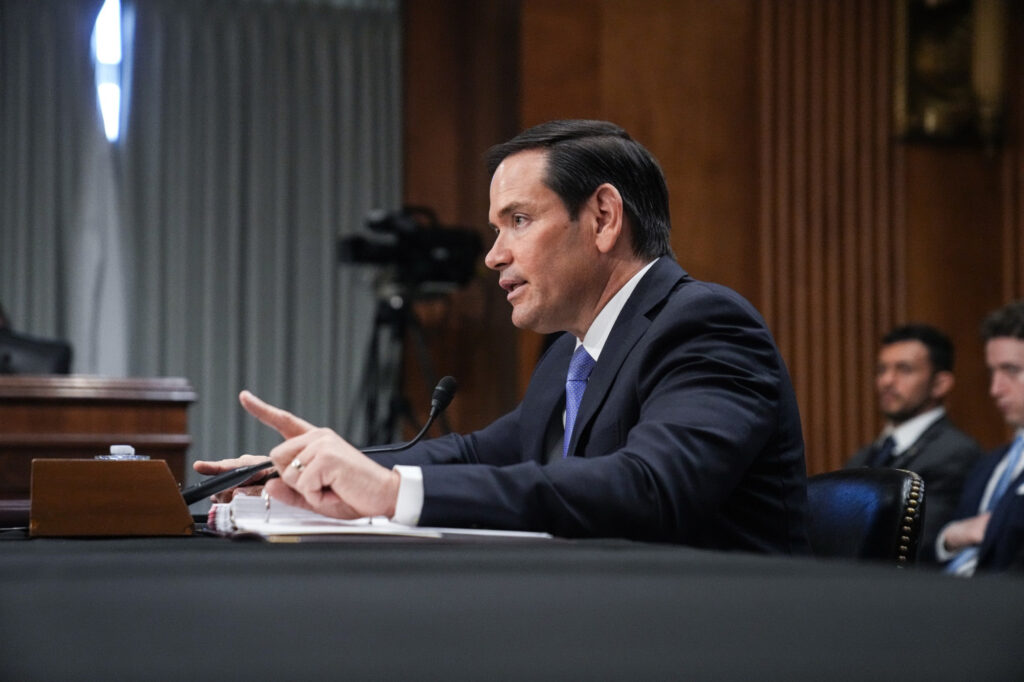
– On May 22, 2025, the Trump administration revoked Harvard University’s certification to enroll international students, citing alleged ties to the Chinese Communist Party and the failure to prevent antisemitism on campus. This action barred Harvard from admitting new foreign students, and jeopardized the status among the existing ones.One day after, the federal court blocked this decision.
– Following the actions on Harvard, the U.S. State Department has also paused all new student visa interviews globally, with the further announcement on implementing enhanced social media screenings for new visa applicants. It raised concerns across U.S. universities, which rely heavily on international students, especially the students from China, for both academic and financial contributions.
– On May 28, Secretary of State Marco Rubio announced to “aggressively revoke” visas of Chinese students in the U.S., especially the ones affiliated with the Chinese Communist Party and the ones studying in “critical fields” that threaten the U.S. national security.
– China condemned the U.S.’s decision of revoking the Chinese student visas a day later, stating that they infringe upon the legitimate rights of Chinese students and disrupt normal cultural exchanges. The Chinese Foreign Ministry lodged formal protests, warning such measures would damage the U.S.’s international credibility.
– Meanwhile, universities around the world, such as Hong Kong University of Science and Technology and Osaka University have begun attracting international students who are facing potential difficulties in the U.S., offering measures like tuition waivers.
– Contrary to the U.S., China has expanded the list of nations whose citizens can enjoy visa-free travel.. Currently, citizens of 43 countries enjoy unilateral visa-free travel to China, alongside 26 mutual visa exemption agreements applying to holders of ordinary passports.
– At the same time, critics state that White House’s plan to revoke visas for Chinese students could inadvertently benefit China by prompting the return of skilled individuals to bolster its economy.
Associated News References:
“China Expands Travel Access As US Threatens Student Visas” Newsweek, June 2
“Harvard Chinese grad speech draws praise and ire,” BBC, June 2
“China happy with restrictions on its students, lawmaker says,” Politico, June 1
“Denying Visas to Chinese Students Could Backfire on America,” May 30
“Global universities seek to lure US-bound students amid Trump crackdown,” Reuters, May 30
“China condemns US decision to revoke student visas,” The Guardian, May 29
“U.S. Will ‘Aggressively’ Revoke Visas of Chinese Students, Rubio Says,” New York Times, May 29
“US halts student visa appointments and plans expanded social media vetting” BBC, May 28
“HKUST Opens Doors to Harvard Students Amid Global Academic Shifts” Hong Kong University of Science and Technology, May 23
“Federal judge blocks the Trump administration from revoking Harvard’s ability to enroll foreign students,” NBC News, May 23
“Trump Administration Says It Is Halting Harvard’s Ability to Enroll International Students,” New York Times, May 22

– President Donald Trump accused China of violating the Geneva trade agreement with the United States in a social media post on May 30. But he did not specify what action taken by China that had allegedly violated the agreement.
– In response, on June 1, China said the Trump administration is undermining the trade agreement with its recently imposed AI chip export control guidelines and its plan to revoke Chinese student visas.
– The day before President Trump posted on social media, Treasury Secretary Scott Bessent suggested that President Xi and Trump may need to hold a phone call to overcome the roadblocks in current trade negotiation as he sees the process being “a bit stalled”.
– It was reported that President Trump was not happy with China’s “slow walk” approvals for export licenses for rare earths – critical to making cars, chips and other products – and sees that as not fulfilling its commitments.
– Secretary Bessent said on June 1 that President Trump and Xi will speak soon to iron out trade issues including disputes over rare earth.
– The National Economic Council director Kevin Hassett also said that the two leaders are “likely” to talk in the following week about the ongoing trade negotiations on June 1.
– The U.S. stock market edged lower on June 2 following the reemerging trade tensions between the two largest economies with the S&P 500 Index declined 0.2% and Dow Jones down 0.4%.
Associated News References:
“US Stocks Slip as Trade Friction, Geopolitics Dent Sentiment,” Bloomberg, June 2
“China says U.S. violated tariff truce as trade war heats up,” CBS News, June 2
“China hits back at Trump, saying U.S. actions ‘severely undermine’ trade truce”, NBC News, June 2
“U.S.-China Trade Talks On The Ropes As Tech War Heats Up; S&P 500 Futures Fall,” Investor’s Business Daily, June 2
“US says trade row with China could ease after Trump-Xi talks, which could ‘happen soon’,” South China Morning Post, June 2
“Trump, Xi to talk this week about trade, key advisor says,” AXIOS, June 1
“Trump claims China ‘totally violated’ trade agreement with US,” Bloomberg, May 30
“China hits back after Trump claims it is ‘violating’ tariff truce,” BBC, May 30
“Trump accuses China of violating trade deal, doubles steel and aluminum tariff,” Reuters, May 30
“Bessent: U.S.-China trade talks “a bit stalled”,” AXIOS, May 30
“U.S.-China Trade Truce Risks Falling Apart Over Rare-Earth Exports,” The Wall Street Journal, May 30
“U.S.-China trade talks: Why rare-earth minerals are a sticking point in getting back on track,” MarketWaatch, May 30
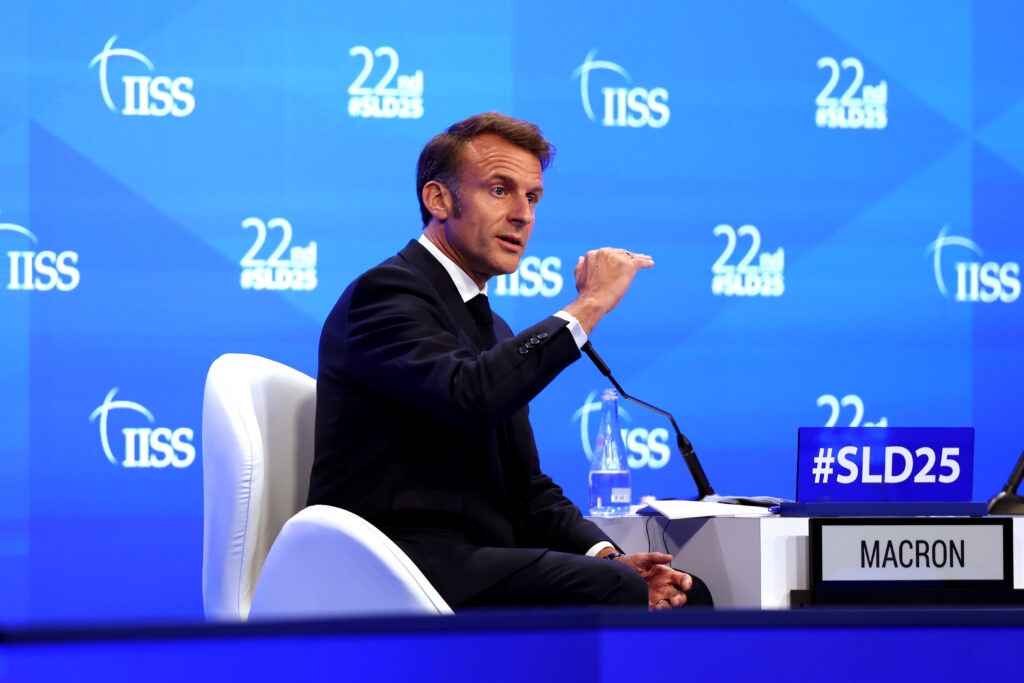
– French President Emmanuel Macron, during his keynote at the Shangri-La Dialogue in Singapore on May 30, emphasized the need for a “positive new alliance” between Europe and Asia under the context of the growing divide between the U.S. and China. Macron also stressed that allied nations must respond collectively to preserve peace and credibility.
– Macron also cautioned that failing to confront Russia’s aggression in Ukraine could embolden similar actions by China in Taiwan. In response, China denounced Macron’s comparison of Taiwan and Ukraine, labeling it a “double standard” and asserting that Taiwan is an internal matter.
– On June 2, as a method to drive through the U.S.-China turbulence, the Philippines and the European Union agreed to initiate a security and defense dialogue. The planned dialogue will serve as a platform for deepening cooperation and sharing security expertise, and launching joint initiatives under the existing partnership agreement.
– At the Shangri-La Dialogue, Southeast Asian leaders expressed concerns over being drawn into the U.S.-China rivalry. Malaysian Prime Minister Anwar Ibrahim criticized U.S. protectionist trade policies, emphasizing that open trade is vital for stability and growth in Asia. Other leaders, including the Japanese Defense Minister Gen Nakatani and the Malaysian advisor Mohd Faiz Abdullah, have all resisted tying defense purchases to U.S. tariff, instead calling for stronger U.S. economic engagement.
– Singapore’s Foreign Ministry urged foreign embassies to avoid using local platforms to stir international disputes, after a U.S. Embassy video likened China’s South China Sea actions to a troublesome neighbor. It stressed that such matters should be handled through formal diplomacy.
– The European Union is set to limit Chinese firms’ participation in large public tenders for medical devices, citing unfair treatment of EU companies in China. The move aims to address market imbalances and pressure Beijing to open its own procurement market more fairly.
Associated News References:
“Philippines to set up security, defense dialogue with EU,” Arab News, June 2
“EU Votes to Curb China’s Access to Medical Device Procurement,” Bloomberg, June 2
“Philippines, EU To Begin Security Dialogue On Emerging Threats,” Strat News, June 2
“In Asia, Hegseth warns of China ‘threat,’ but few want to pick sides,” The Washington Post, June 1
“China slams Macron over ‘unacceptable’ comments on Taiwan and Ukraine,” Politico, May 31
“Trade ‘critical’ to ASEAN, must be protected from ‘arbitrary’ curbs: Anwar at Shangri-La Dialogue,” CNA, May 31
“Economic disruptions can result in ‘systemic shock’ that goes beyond the region: Malaysia PM Anwar,” The Straits Times, May 31
“Japan, U.S. agree tariff talks making progress toward deal,” Kyodo News, May 31
“Europe and Asia should form ‘positive new alliance’, says Macron in Singapore,” The Guardian, May 30
“Watch: US embassy likens China to antisocial neighbour living in flats,” The Times, May 22

– On June 2, Boeing CEO Kelly Ortberg expects Chinese airlines to resume orders that were paused during the trade war but analyses show that supply chain constraints and tariff uncertainties could slow actual deliveries.
– On June 1, AmCham President Michael Hart said that China is not blocking rare earth exports, contrary to the U.S. officials’ complaints.
– Reporters noted that American and European companies are facing shortages of magnets made from these critical materials. American automakers are warning of imminent production slowdowns due to magnet shortage.
– Semiconductor giant Nvidia is developing a new China-tailored AI chip that complies with U.S. export regulations amid mounting difficulties to preserve its market share in the world’s second largest economy as Washington continues to tighten tech restrictions.
– On May 31, spokesperson of the Chinese Embassy in U.S. called out the Trump administration for “abuse” of semiconductor export control.
– U.S. Commerce Department required all ethane shipping to China – constitutes almost all of China’s ethane import – to acquire a license and revoked licenses already granted to some suppliers, which caused disruption in the U.S. ethane exports to China.
– Jensen Huang, the CEO of Nvidia Corp, said that Chinese AI rivals such as Huawei are quickly evolving into “quite formidable” competitors during an interview on May 31.
– On May 28, the Trump administration suspended some sales of critical technologies such as jet engines, semiconductors and certain chemicals and machinery to China.
Associated News References:
“Boeing’s China hopes face trade war headwinds, supply chain risks: analysts,” South China Morning Post, June 2
“China blasts US for its computer chip moves and for threatening student visas,” ABC News, June 2
“Nvidia builds new AI chip for China with powerful computing cluster capabilities: report,” South China Morning Post, June 2
“U.S. Dependence on China for Rare Earth Magnets Is Causing Shortages,” New York Times, June 2
“AmCham President Says China Isn’t Blocking Rare Earths Exports,” Bloomberg, June 1
“US ethane exports to China hit new road block with license requirement,” Reuters, May 30
“China calls out Trump for ‘abuse’ of semiconductor export controls,” CNBC, May 30
“Nvidia CEO Warns That Chinese AI Rivals Are Now ‘Formidable’,” Bloomberg, May 28
“Despite tariff pause, U.S. and China continue bitter ‘decoupling’,” The Washington Post, May 28
“U.S. Pauses Exports of Airplane and Semiconductor Technology to China,” The New York Times, May 28
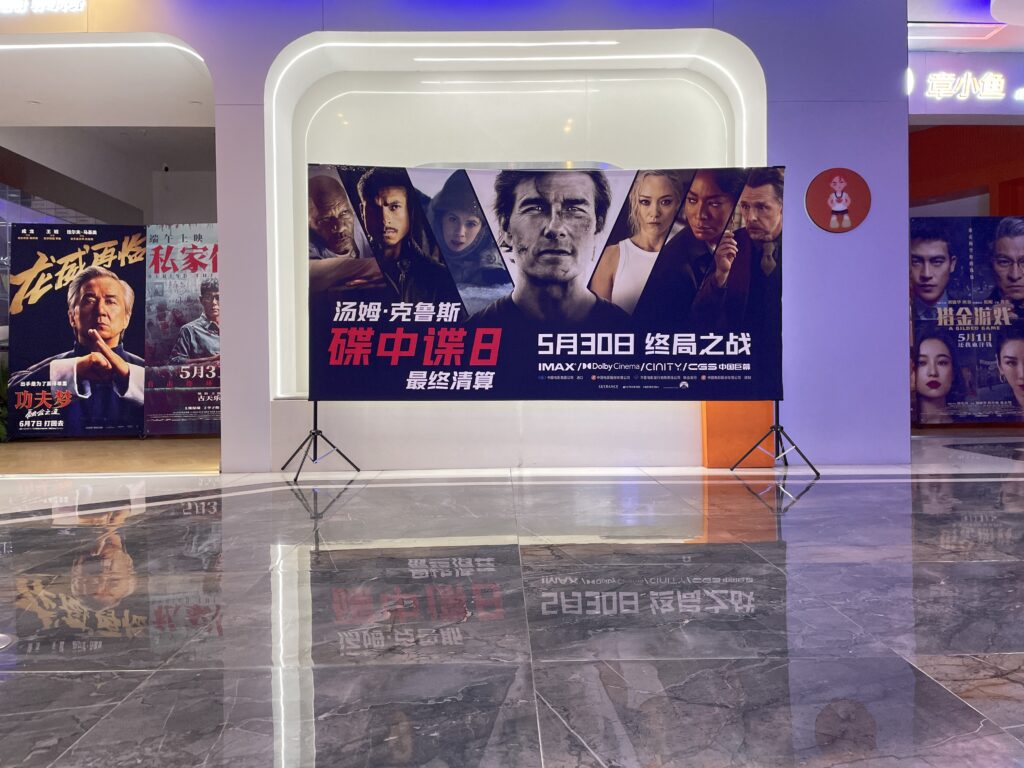
“Jamie Dimon says he’s not afraid of China, but worries about America’s own challenges,” Fox Business, June 2
“Harvard Chinese grad speech draws praise and ire,” BBC, June 2
“US Warship Challenged Beijing’s South China Sea Claims, Navy Says,” Newsweek, June 2
“European markets lower as investors eye US-China trade developments,” Euronews, June 2
“Soybean Prices Slide Amid Renewed US-China Tensions,” TradingView, June 2
“Tom Cruise’s ‘Mission: Impossible – The Final Reckoning’ Rules China Box Office,” Variety, June 1
“University of Michigan student fled to China after being charged with voting illegally, FBI says,” CBS News, June 1
“Chinese Shares Fall in Hong Kong on New Trade Frictions With US,” Bloomberg, June 1
“China Warns US Over Trump’s ‘Golden Dome’,” Newsweek, May 30
“China’s factory activity contracts in May, but there are signs of improvement,” AP News, May 30
Webinar on EU-China-US Relations Amid Global Tariff Tensions
Hosted by Institute for China-Europe Studies (ICES)
May 27, 2025
On May 27, Senior Fellow Sourabh Gupta spoke at the inaugural event of the Institute for China-Europe Studies (ICES) special dialogue series on 50 Years of EU-China Relations. The event explored key themes that have shaped and continue influencing China-EU relations. The panel discussed the trade war evolution and the role China, the US and Europe play in the latest developments, its impact on trilateral and bilateral relations, as well as policy recommendations.
A Test for the Future of Global Ocean Law
By Nong Hong
June 2, 2025
U.S. President Donald Trump issued an executive order in April authorizing government agencies to grant commercial licenses to companies seeking to mine in areas beyond national jurisdiction — meaning the ocean floor. This marked a significant shift in U.S. ocean policy, emphasizing national interest and access to critical minerals. The move reinforced longstanding U.S. concerns over the regulatory authority of the International Seabed Authority (ISA) and intensified global competition around the governance of the seabed — a space considered the common heritage of humankind…
US, China and EU: The race for Greenland’s mineral riches
By Nong Hong
June 2, 2025
As the climate warms and ice retreats, global powers are racing to secure access to these resources. The US, China, and the EU have all staked political, economic and strategic claims on Greenland’s future. But their competing approaches not only shape Greenland’s mining landscape — they also carry profound implications for Arctic governance, economic development, great power rivalry and Greenland’s path toward greater autonomy…
The U.S. Auto Industry Has Not Lost Yet—But It Must Compete Smarter
By Yilun Zhang
May 30, 2025
The Trump administration has once again pushed the American auto industry at the forefront of global competition, and the outlook is not great. Amid rising concerns over retaliatory measures from Europe targeting iconic U.S. brands, the reduction of UK vehicle tariffs under a new U.S.-UK trade agreement, and the mounting pressure posed by low-cost Chinese EVs potentially flooding into the U.S. via Mexico, the U.S. auto industry seems increasingly demanding Washington to adopt a highly defensive posture. These developments reflect a broader concern that the U.S. auto industry, once a century-long global emblem of industrial innovation, is no longer capable of competing on its own terms. But protectionism is not a substitute for competitiveness—and too often, it is used to mask the lack of a strategy, which is where the weakness of the U.S. auto industry truly lurks. That said, the U.S. auto industry is not doomed…
UK’s Chagos Deal Puts Spotlight on Strategic Contest in the Indian Ocean
By Nong Hong
May 28, 2025
Decades of dispute over the Chagos Archipelago in the Indian Ocean, rooted in colonial history and international legal challenges, have been addressed after the United Kingdom agreed to transfer sovereignty of the islands to Mauritius. Under the May 22 deal, the UK retains a 99-year lease on the UK-US military base on Diego Garcia, the largest of the islands. Under British colonial rule, the island chain was separated from Mauritius in 1965, three years before Mauritius was granted independence. Around 2,000 Chagos residents were forcibly removed to make way for the building of the military base on Diego Garcia…
How Hybrid Thinking Can Bridge America’s Budget and Climate Goals
By Zhangchen Wang
May 23, 2025
The debate over the new federal budget resolution is yet to see an end in Washington. With key provisions of the 2017 Tax Cuts and Jobs Act (TCJA) set to expire in 2025, Republican lawmakers have made clear their intent to extend the tax reductions introduced under the first Trump administration. Amid growing concerns over long-term fiscal imbalance—potentially over $5 trillion in the next ten years—Republicans are under increasing pressure to identify offsetting spending cuts in other places. In this context, the Inflation Reduction Act (IRA)—once considered as a cornerstone of American climate ambition under the Biden administration—is increasingly being viewed as a budgetary leverage. The IRA’s most generous consumer-facing subsidies and industrial tax credits are now squarely placed in the crosshairs of ongoing budget discussions…
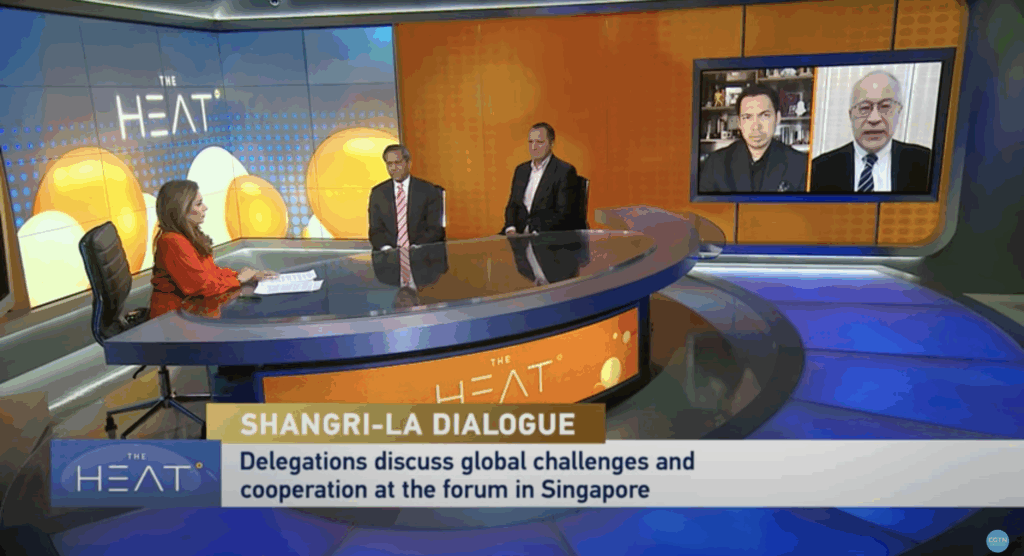
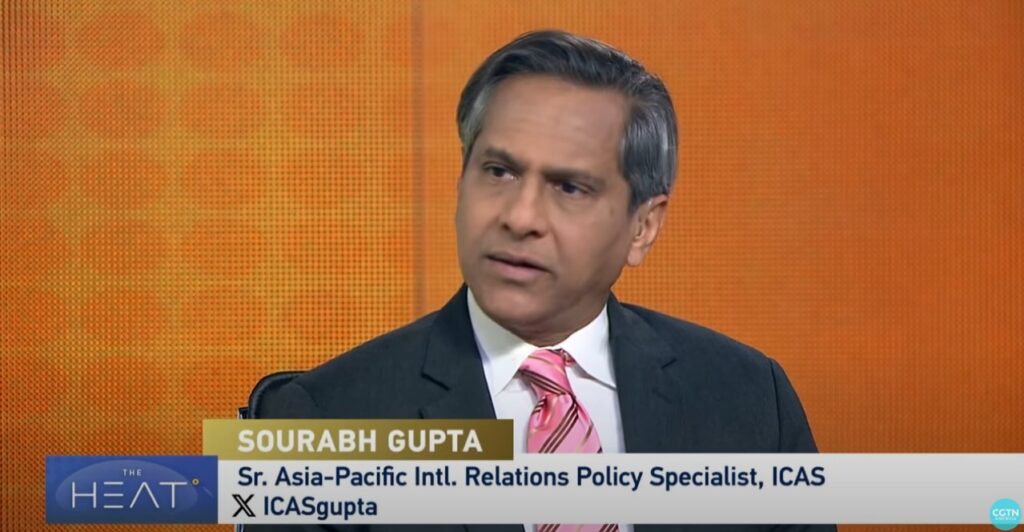
On Friday, May 30, 2025, Senior Fellow Sourabh Gupta was interviewed by CGTN America on the Shangri-La Dialogue.

The Institute for China-America Studies is an independent nonprofit, nonpartisan research organization dedicated to strengthening the understanding of U.S.-China relations through expert analysis and practical policy solutions.
1919 M St. NW Suite 310,
Washington, DC 20036
icas@chinaus-icas.org
(202) 968-0595
© 2025 INSTITUTE FOR CHINA-AMERICA STUDIES. ALL RIGHTS RESERVED.